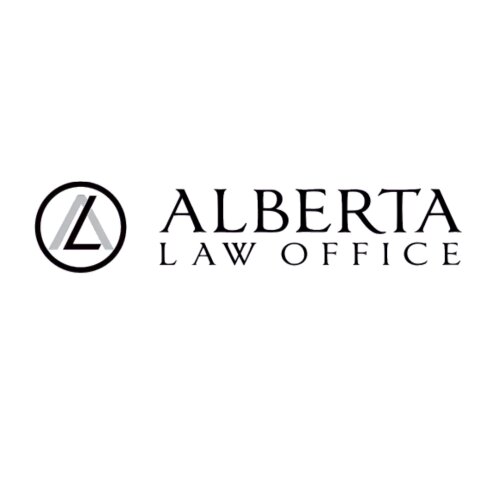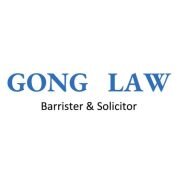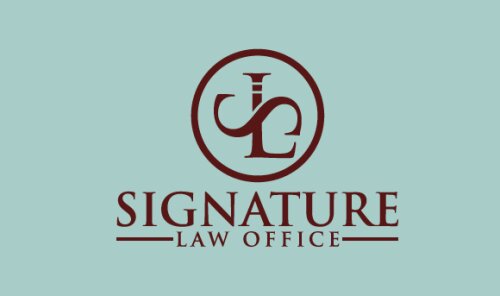Best Real Estate Lawyers in Canada
Share your needs with us, get contacted by law firms.
Free. Takes 2 min.
Free Guide to Hiring a Real Estate Lawyer
Or refine your search by selecting a city:
List of the best lawyers in Canada
Canada Real Estate Legal Articles
Browse our 1 legal article about Real Estate in Canada written by expert lawyers.
- Buying Property Abroad as a Canadian: A Legal Checklist
- Real estate law in Canada is mostly provincial, so rules on land registration, landlord-tenant rights, condos/strata, and land transfer tax differ by province and territory. For a typical home purchase, budget roughly 2% to 5% of the purchase price for closing costs in addition to your down payment, including land... Read more →
About Real Estate Law in Canada
Real estate law in Canada governs the buying, selling, renting, and use of land and buildings. With a complex legal landscape that includes various provincial and federal regulations, real estate law covers residential and commercial properties, land use and zoning laws, as well as all the legal rights and obligations involved in real property transactions. Each province and territory may have distinct regulations and procedures, making it crucial for participants in real estate transactions to be aware of the specific legal requirements in their region.
Why You May Need a Lawyer
There are several situations where consulting a lawyer specializing in real estate law can be beneficial:
- Property Transactions: Buying or selling a property requires a significant legal oversight to ensure compliance with applicable laws and to protect one's interests.
- Lease Agreements: Drafting, reviewing, or negotiating leases for residential or commercial properties often requires legal knowledge to ensure the terms are fair and enforceable.
- Dispute Resolution: Real estate disputes can arise over property boundaries, contract violations, or landlord-tenant disagreements, which may necessitate legal intervention.
- Real Estate Development: Any development project involves a comprehensive understanding of zoning laws, land use regulations, and environmental assessments, typically requiring legal guidance.
- Financing and Mortgage Issues: Legal advice might be needed for understanding the terms of a mortgage or resolving issues related to property financing.
Local Laws Overview
Key aspects of Canadian real estate law include:
- Provincial Regulations: Each province has its laws governing real estate transactions, property taxes, and land registration requirements.
- Ownership Restrictions: Foreign ownership of property is restricted in certain provinces, requiring an awareness of local laws for non-residents.
- Land Use and Zoning Laws: These laws regulate how land can be used and affect property development and use. They vary widely across municipalities.
- Consumer Protection Laws: Various laws are in place to protect consumers in real estate transactions, ensuring transparency and fairness.
Frequently Asked Questions
What should I consider before buying a property in Canada?
Consider location, market conditions, financing options, and any tax implications. Consulting a real estate agent or lawyer can provide additional insights.
How does the property buying process differ across provinces?
The process varies with differences in offer forms, conditions, and taxes like the land transfer tax. Legal counsel can provide province-specific advice.
Can foreigners buy property in Canada?
Yes, but certain provinces impose restrictions on foreign ownership. It's essential to check specific provincial regulations.
What are the legal requirements for selling a property?
Sellers must disclose certain defects and comply with all contractual obligations. Legal assistance can help navigate these requirements.
How are property disputes typically resolved in Canada?
Disputes may be resolved through mediation, arbitration, or litigation, and many provinces offer tribunals for smaller disputes.
What are the important considerations in a commercial lease?
Key considerations include lease term, renewal options, rent escalation, and permitted use. Legal review ensures these elements are advantageous.
What taxes are involved in Canadian real estate transactions?
Common taxes include property tax, land transfer tax, and possible capital gains tax. These can vary significantly by province and over time.
What is the role of a notary in real estate transactions?
Notaries can authenticate documents and ensure transactions comply with legal standards, particularly in Quebec and British Columbia.
How do zoning laws affect property use?
Zoning laws determine permissible property uses (residential, commercial, industrial) and can affect renovations or new constructions.
What is title insurance, and do I need it?
Title insurance protects against title defects or legal challenges in property ownership. It's often recommended and sometimes required by lenders.
Additional Resources
Here are some resources and organizations that can provide more information or assistance:
- Canada Mortgage and Housing Corporation (CMHC): Provides housing information and assistance.
- The Law Society of Upper Canada: Offers resources for finding a qualified real estate lawyer in Ontario.
- Provincial Land Registry Offices: These offices provide access to land ownership records and information.
- Real Estate Council of British Columbia (RECBC): Provides regulatory information and resources for property transactions in BC.
Next Steps
If you need legal assistance in real estate:
- Determine Your Needs: Understand the issues you face and outline what assistance you require.
- Consult with a Real Estate Agent: They can provide preliminary advice and recommend reputable lawyers.
- Find a Qualified Lawyer: Use resources from law societies in your region to locate a lawyer specializing in real estate law.
- Prepare Relevant Documents: Gather any contracts, correspondence, and property titles associated with your case.
- Book a Consultation: Schedule a meeting with the lawyer to discuss your situation and outline possible legal pathways.
Lawzana helps you find the best lawyers and law firms in Canada through a curated and pre-screened list of qualified legal professionals. Our platform offers rankings and detailed profiles of attorneys and law firms, allowing you to compare based on practice areas, including Real Estate, experience, and client feedback.
Each profile includes a description of the firm's areas of practice, client reviews, team members and partners, year of establishment, spoken languages, office locations, contact information, social media presence, and any published articles or resources. Most firms on our platform speak English and are experienced in both local and international legal matters.
Get a quote from top-rated law firms in Canada — quickly, securely, and without unnecessary hassle.
Disclaimer:
The information provided on this page is for general informational purposes only and does not constitute legal advice. While we strive to ensure the accuracy and relevance of the content, legal information may change over time, and interpretations of the law can vary. You should always consult with a qualified legal professional for advice specific to your situation.
We disclaim all liability for actions taken or not taken based on the content of this page. If you believe any information is incorrect or outdated, please contact us, and we will review and update it where appropriate.
Browse real estate law firms by service in Canada
Canada Attorneys in related practice areas.
Browse real estate law firms by city in Canada
Refine your search by selecting a city.















